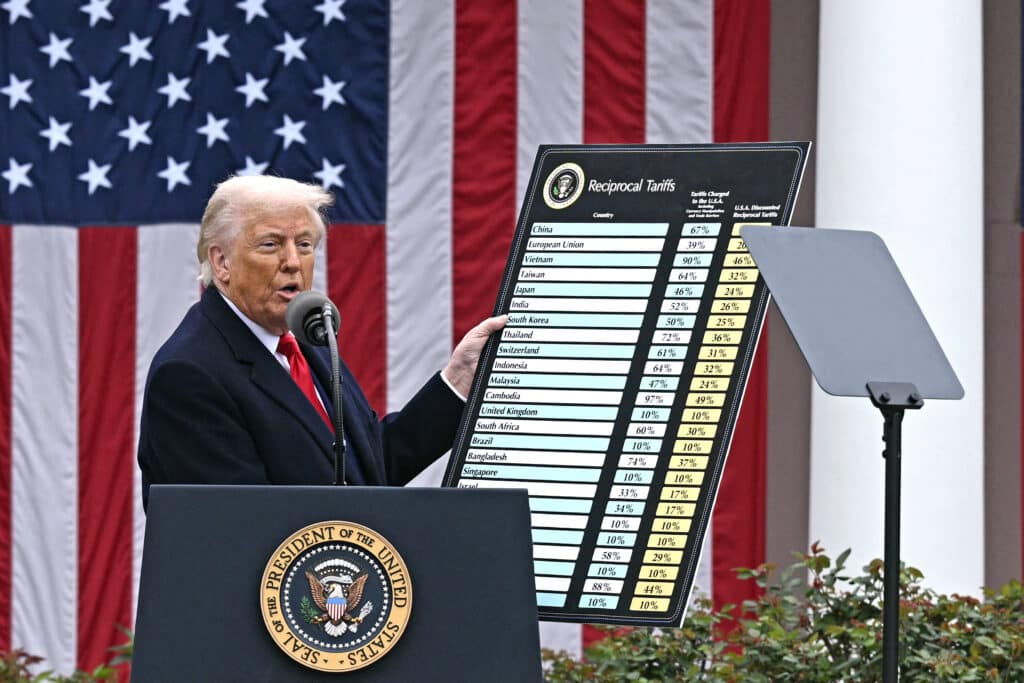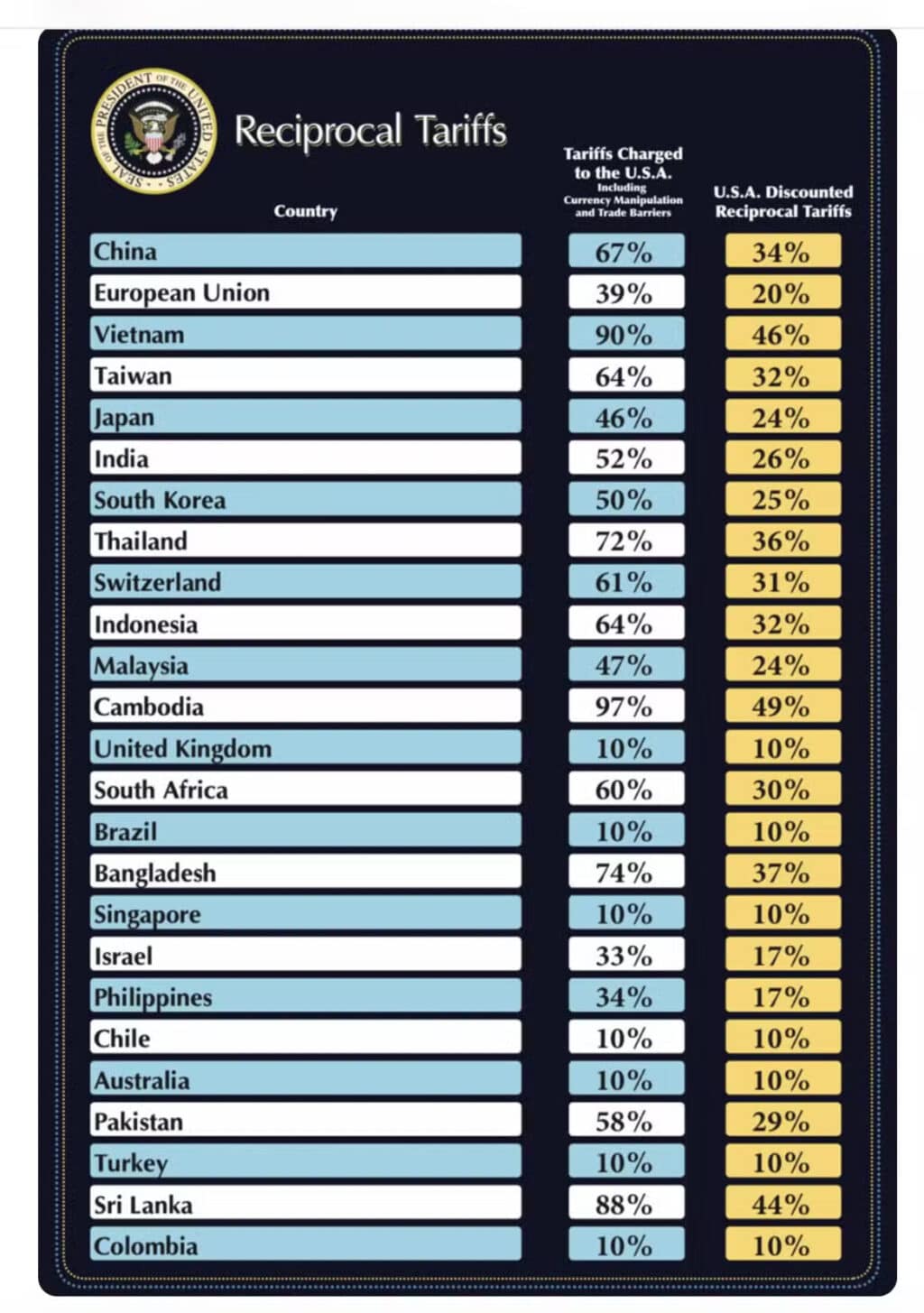
US President Donald Trump delivers remarks on reciprocal tariffs as US Secretary of Commerce Howard Lutnick holds a chart during an event in the Rose Garden entitled “Make America Wealthy Again” at the White House in Washington, DC, on April 2, 2025. | Photo by Brendan SMIALOWSKI / AFP
MANILA, Philippines — A 17 percent tariff will be slapped to Philippine exports to America starting April 9.
This is part of the sweeping “Liberation Day” tariff policy announced by United States president Donald Trump.

Mr. Trump posted a table on Truth Social where he announced the the 17-percent tariff. This is, however, still lower than the 34 percent imposition on goods coming to the country from America.
READ: Trump sparks trade war with sweeping global tariffs
An annex to a Trump statement issued by the White House, however, indicated a slightly higher tariff rate of 18 percent on the Philippines.
Lower than most of Southeast Asia
Higher tariffs are likewise imposed on most of key Southeast Asian neighbors: Vietnam at 46 percent, Thailand at 36 percent, Indonesia at 32 percent and Malaysia at 24 percent and Cambodia at 49 percent.
Only Singapore will be slapped with just 10-percent tariff — the baseline figure cited by Mr. Trump, who cited an urgent need to “strengthen the international economic position of the United States and protect American workers.”
READ: Explainer: Key details on Trump’s market-shaking tariffs
Trump announced “individualized” reciprocal higher tariff on countries with which the US has the largest trade deficits. All other countries will be subjected to the original 10-percent tariff baseline effective April 5.
“Large and persistent annual U.S. goods trade deficits have led to the hollowing out of our manufacturing base; resulted in a lack of incentive to increase advanced domestic manufacturing capacity; undermined critical supply chains; and rendered our defense-industrial base dependent on foreign adversaries,” Trump said.
Mr. Trump invoked his authority under the International Emergency Economic Powers Act of 1977 to “address the national emergency posed by the large and persistent trade deficit.” — Doris Dumlao-Abadilla
Read Next
Disclaimer: The comments uploaded on this site do not necessarily represent or reflect the views of management and owner of Cebudailynews. We reserve the right to exclude comments that we deem to be inconsistent with our editorial standards.